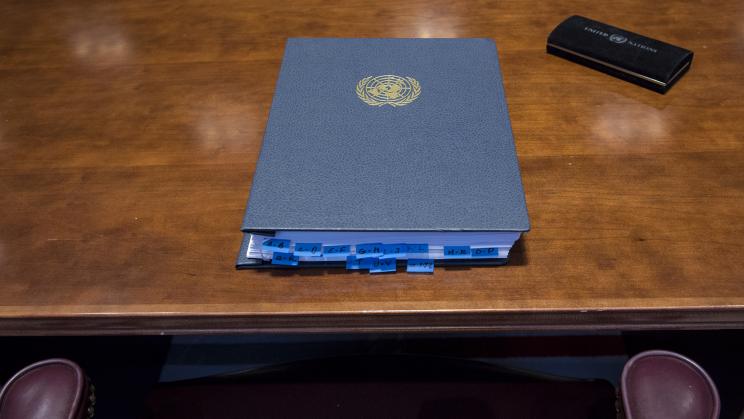
SIPRI Distinguished Associate Fellow, Dr Lars-Erik Lundin, has been appointed by the government of Sweden to lead an inquiry into the consequences of a possible Swedish accession to the Treaty on the Prohibition of Nuclear Weapons.
As Inquiry Chair, Dr Lundin’s remit is to gather information from relevant ministries, government agencies, the research community and civil society, as well as other stakeholders in Sweden and abroad.
The Inquiry will analyse the content of the Treaty and the consequences of Swedish accession in areas including:
- Swedish disarmament/non-proliferation policy;
- the Treaty's relation to other relevant treaties and agreements, including the Treaty on the Non-Proliferation of Nuclear Weapons (NPT), the Comprehensive Nuclear-Test-Ban Treaty (CTBT) and the EU treaties;
- Sweden's bilateral and multilateral security and defence policy cooperation;
- Sweden's obligations under other relevant treaties and agreements (including EU treaties), and analysis of the Treaty's requirements in relation to Swedish practice concerning the implementation of these;
- any need to adapt Swedish legislation and guidelines that the Treaty gives rise to; and
- the possibility of withdrawing from the Treaty
The Inquiry is to report its conclusions by 31 October 2018. Ultimately, it is up to the Swedish Parliament (Riksdag) to decide whether Sweden will ratify the treaty.
For more information, read the press release on the Swedish Government website. Available in English and Swedish.
About the Treaty on the Prohibition of Nuclear Weapons (also known as the Ban Treaty)
The Treaty – adopted on 7 July this year at a UN conference in New York by a vote of 122 in favour to one against (Netherlands), with one abstention (Singapore) – prohibits a full range of nuclear-weapon-related activities, such as undertaking to develop, test, produce, manufacture, acquire, possess or stockpile nuclear weapons or other nuclear explosive devices, as well as the use or threat of use of these weapons.
Sweden took part in the multilateral negotiation process and voted in favour of the Treaty in connection with the conclusion of the negotiation.
The Treaty will enter into force 90 days after it has been ratified by at least 50 countries.